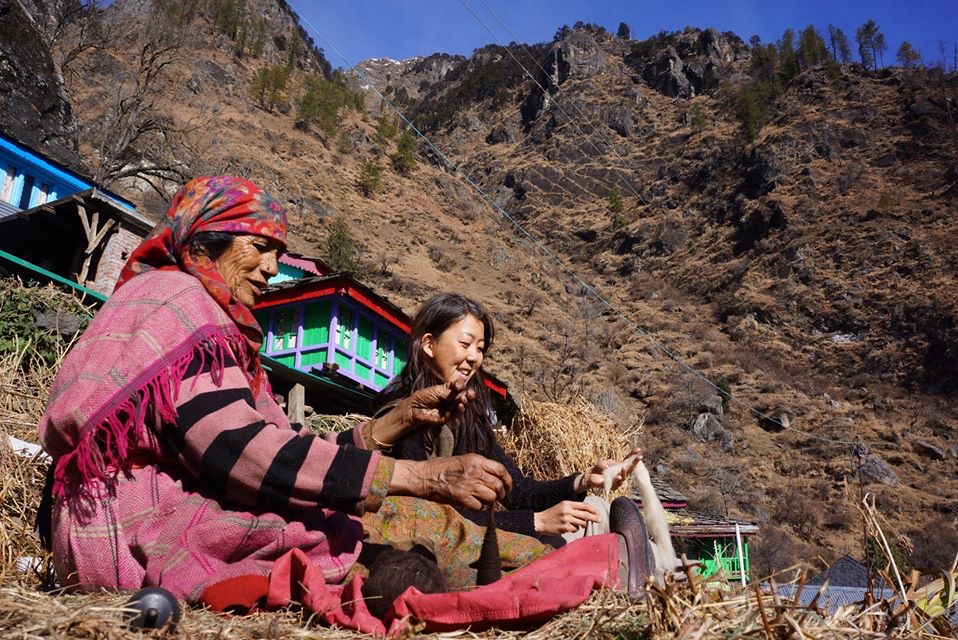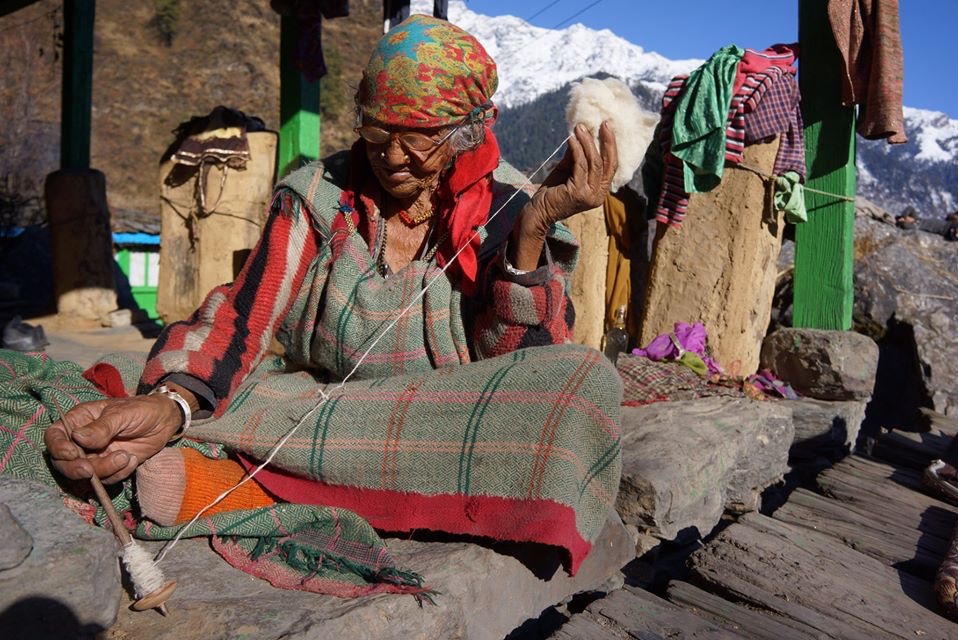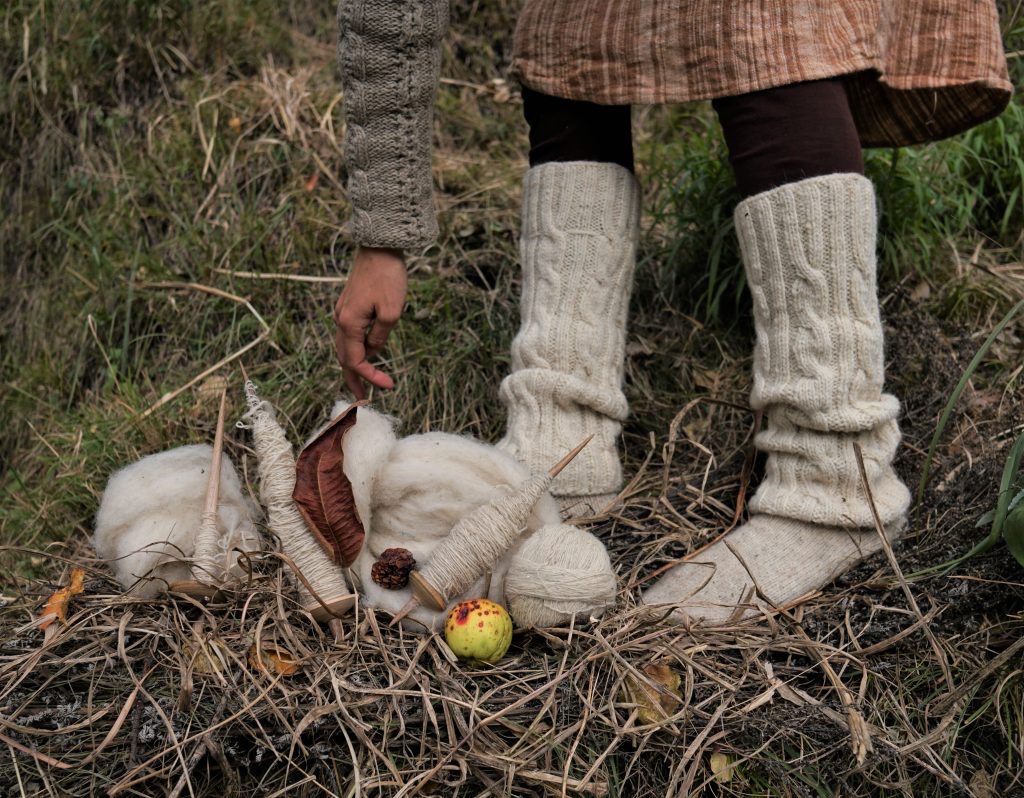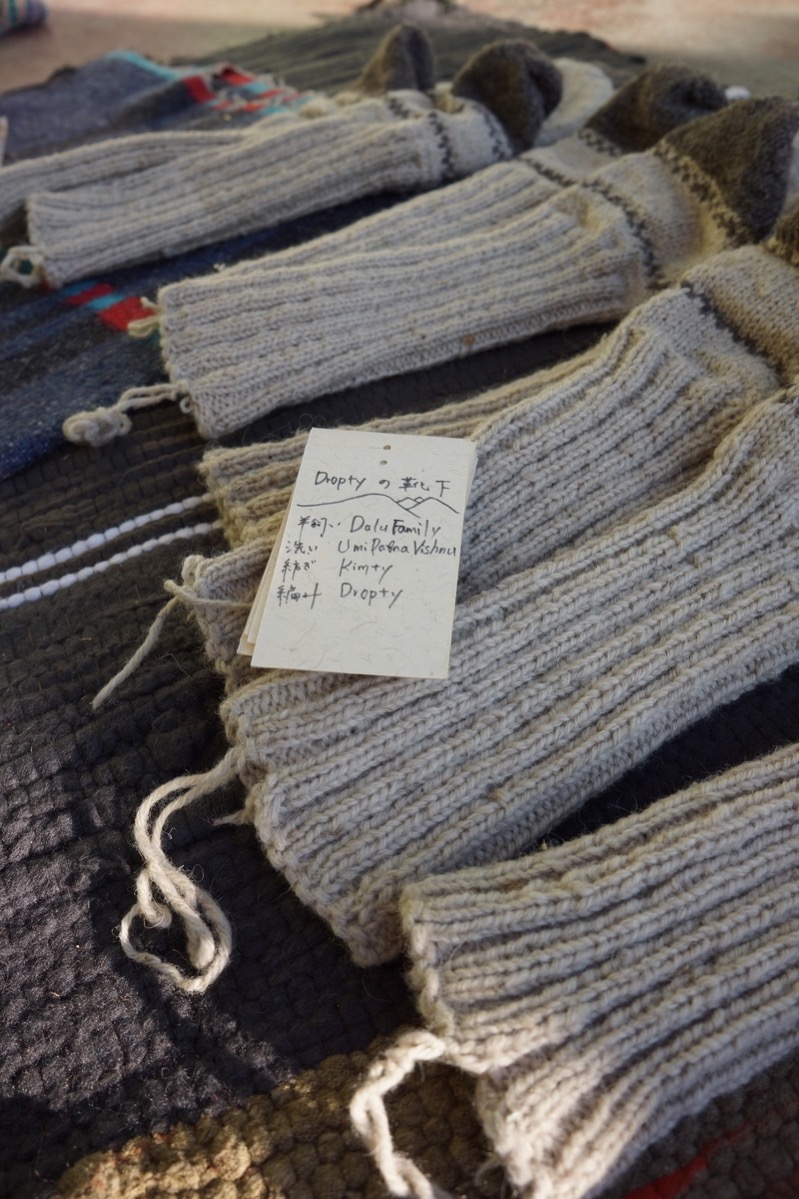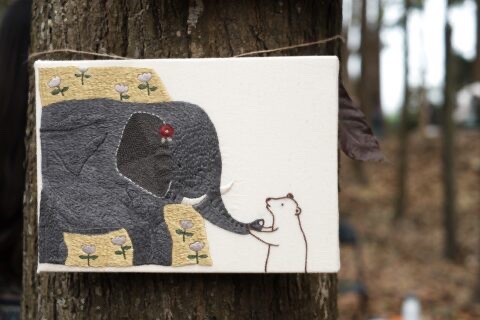
十二年前,Mutsumi Umi Shibata帶著背包旅行,為了尋找一種真實的生活,與大自然一起生活。起初她遊歷日本各地,後來便走到世界。在日本長大,全球化對大自然的破壞卻愈叫她心裡的種子成長,永續文化、素食、自然療法、鄉村生活、瑜伽和冥想都有深入鑽研。「而無論走到哪裡,過分美麗的大自然都會引導著我。」
六年前她首次踏足印度,碰巧住進了喜馬拉雅山腳下的一個村莊。自此便在那裡度過了五個寒冬,「那裡的雪太美了。」她認識了當地的牧羊人,從照顧羊、割草到把羊毛紡成紗線、製作衣服。那些日子裡所學到的,是長久以來,大自然有豐盛的草,綿羊吃了草,在喜馬拉雅山豐富的自然風光裡跟牧羊人一起散步,眼睛看到的色彩都無法言喻無法歸類。沒電力與天然氣的環境中,羊毛收割後用樹林裡流出的山水在高原上沖洗。打從遠古時代,當地人就以這樣的方式生活。她想遵循古老的方法從頭開始製作衣服,首四年她沒有出售作品,只是努力地生活。
Twelve years ago, Mutsumi Umi Shibata embarked on a backpacking trip, hoping to rediscover the true essence of life by living in nature. She started her journey by traveling around Japan before visiting countries overseas. Growing up in Japan, Shibata is well aware of the harm globalization has done to nature. This realization has sparked her interest in sustainable culture, vegetarianism, natural remedies, village life, yoga, and meditation. “Wherever I go, I am simply led by the extraordinarily beautiful nature,” says Shibata.
Six years ago, she set foot in India for the very first time and stayed in a village that sits at the foot of the Himalayas. There, she stayed for five full years. This is a place where “the snow was just too beautiful”, as she describes. During her stay, she got to know some local shepherds who taught her how to take care of sheep, harvest pasture, spinning yarn, as well as making clothes. Taking a walk in the mountains with the shepherds, while being surrounded by vast areas of grassland dotted by grass-mowing sheep, her long stay allowed her to embrace the tranquility. Such a scene must be so delightful that is beyond words. The remote mountain area is not supported by electricity. After shearing the sheep, the workers would simply wash the wool with water from the high mountain rivers. The locals have been living in such a way of life since centuries ago, so Shibata wanted to make clothes using the most traditional production methods. For the first four years, Shibata did not sell a single piece of clothing, all she did was spend all her effort in fulfilling an ideal lifestyle.
